How Jhumpa Lahiri brought Kolkata’s favourite Jhaalmuri through Namesake!
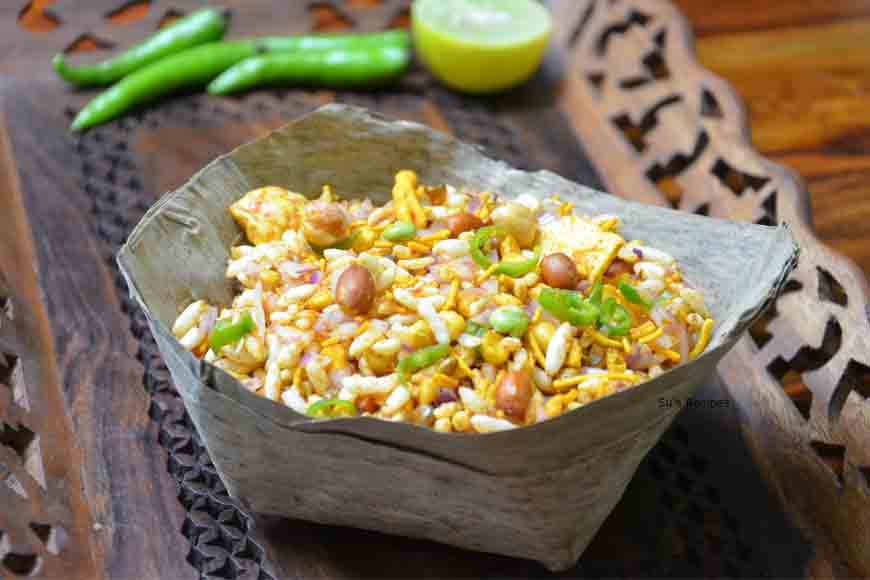
Street food in Kolkata is like religion, so much so, that we can go for ages singing sentimental paeans on street food. The connoisseurs of street food are fiercely loyal and can lock horns and draw daggers if provoked. They earnestly believe and proclaim Kolkata’s street food is THE BEST in the world. Leaving aside the extremism, we can still safely claim that life in the city would have been really insipid and boring had it not been for the vast array of epicurean delights. The temporary food stalls are like manna and ‘It droppeth as the gentle rain from heaven/ Upon the place beneath.’ The variety in these stalls are mind-blowing but the one item that tops the list of pedestrian menu is the quintessential Jhaalmuri (Bengal’s own puffed rice with a flavoured twist).
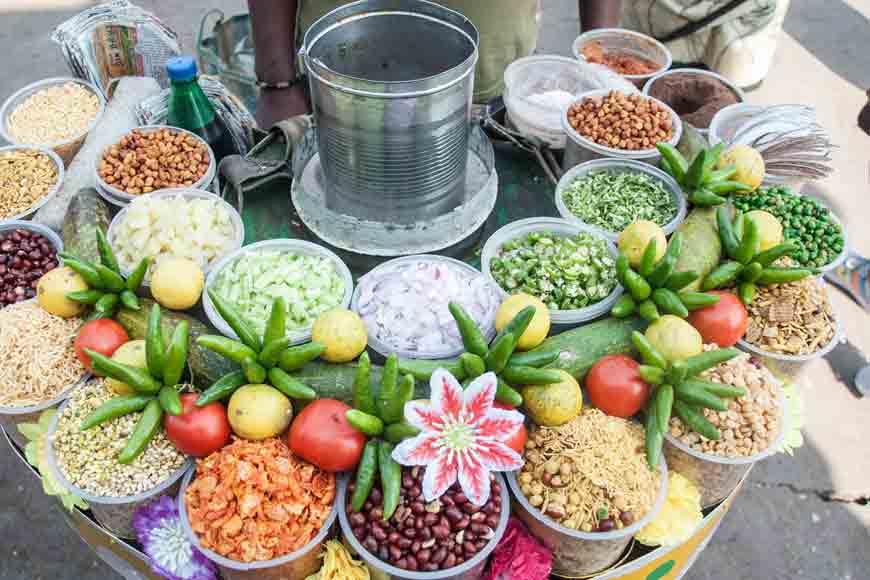
Jhaalmuri’s fame has travelled over the years far and wide, from advertisements and song videos highlighting its tangy variations to well-known authors including this food item in the pages of their books. Take for example Jhumpa Lahiri’s The Namesake, one of the first images that consume you, is that of Ashima Ganguli tossing up jhaalmuri across the Pacific. Any migrant immediately identifies with her yearning for her homeland, and how the comfort food of jhaalmuri makes Ashima feel closer home, the pungent mustard oil carrying the fragrance of her motherland.
Down ages, Muri has always been an essential food item for snacking in Bengali households. In rural Bengal, it is used to welcome guests and is a great favourite even as a lunch item, used in place of cooked rice. It has also been appreciated by hot and happening Bollywood dieticians, as muri is light on the stomach and doesn’t add much calorie to the diet. It is believed Jhaalmuri became popular in Kolkata during World War II, though Muri has always been used down ages in villages as a dish with a wide spectrum, had even with the regular curries and pickles.
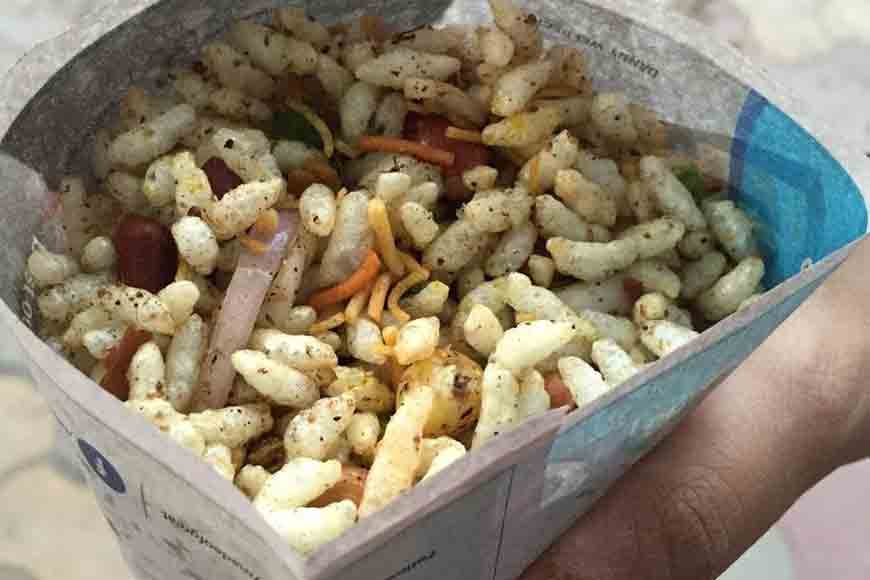
Huge influx of labourers from neighbouring Bihar and Uttar Pradesh during the British Raj, helped to popularize this street food that was cheap and nutritious. Those from Bihar also tried to earn that extra buck, by selling it as a street food to British soldiers, American GIs and of course the Bengali babus. They are the ones who realized the business potential of puffed rice in the disguise of jhaalmuri. The Jhaalmuri that we get these days is along a recipe that happens to be a combination of Bengali and Bihari variants and recently with a dash of Marwari taste. The spicy version is made with puffed rice, chopped boiled potatoes, onions, tomatoes, cucumber, roasted peanuts, bits of coconut, and chopped green chillies; all of which is tossed in a special spice mix, and of course mustard oil, and finally topped with a squeeze of lemon, freshly chopped coriander leaves, a sliver of coconut and a sprinkle of sev. One can even customize it according to one’s choice.
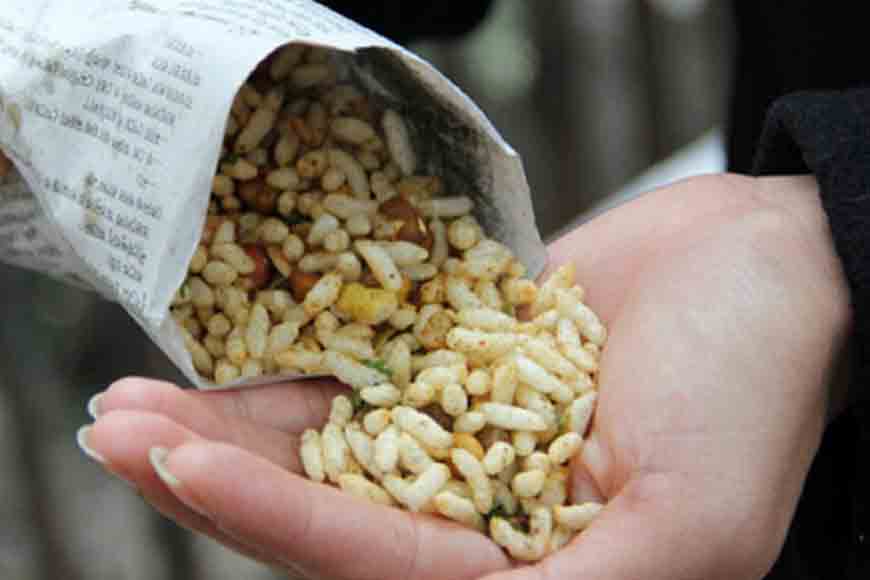
The recipe of the spices is also common knowledge, but it is the right quantity and the timing of mixing each ingredient that creates the magical taste. In fact, watching the muri being made by the roadside vendor is a fascinating and mesmerizing experience. The Jhaalmuriwallah(vendors) use a thin, sharp, and long blade to dice the potatoes, cucumber, tomatoes etc with lightning speed. The way they turn and twist their hands like conjurers is amazing.
But none can beat the jhaalmuriwalas on local trains. Local trains in Bengal are a one-way ticket to gastronomical paradise. Jhalmuriwallahs keep moving inside the compartments. They are quick to respond to any passenger
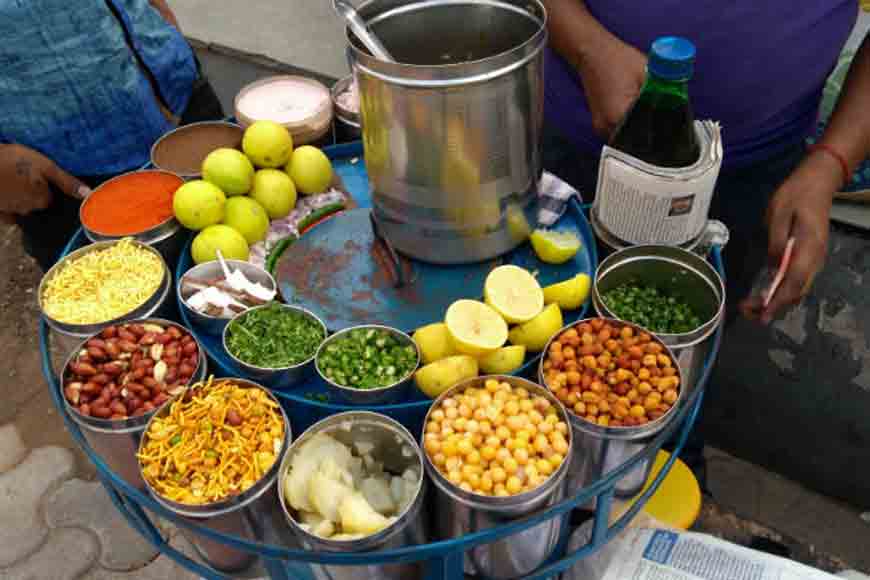
trying to attract their attention. What transpires the next minute is again the handiwork of a conjurer. He chats constantly with passengers or fellow hawkers, but his hands move deftly, mixing the ingredients to perfection! They are in constant demand and they keep assuring “Aschhi Dada aschhi...” It’s not the spot or the takeaway where you would have your jhaalmuri, rather it is fun of having that perfect comfort dish anytime and anywhere!









